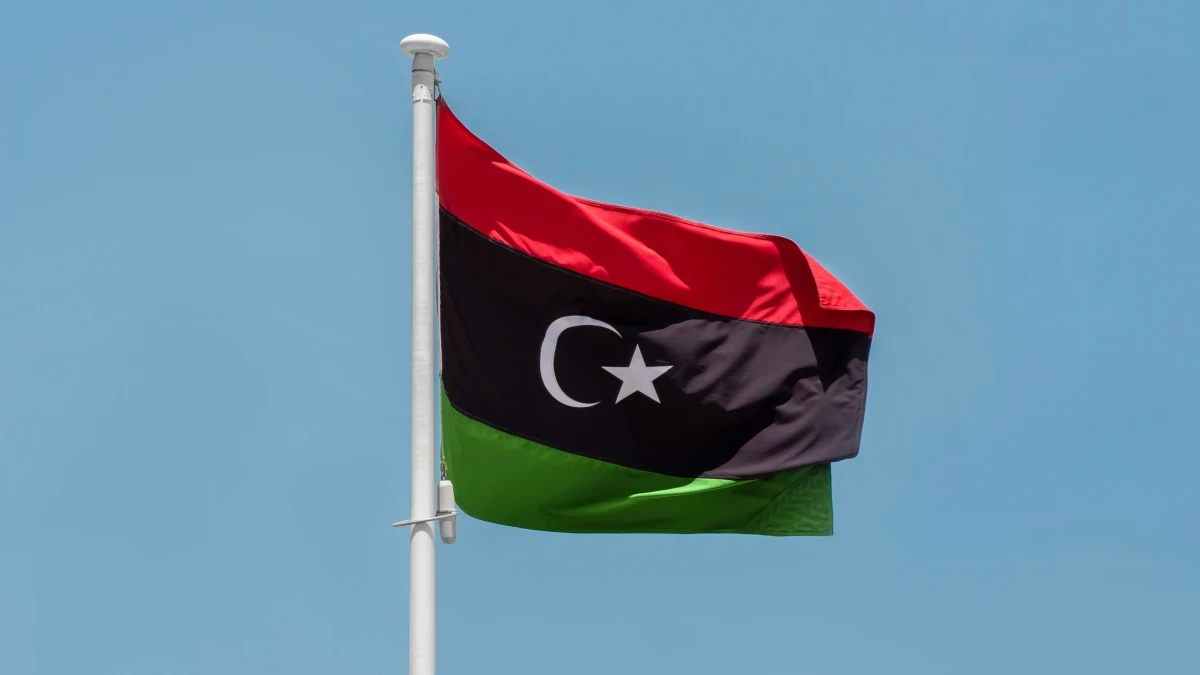Hope for Justice for Victims of Abuse in Libyan Prisons. Militia Leader Arrested in Germany, Armed Group Expected to Hand Over Control of Detention Centers
Published: Oct 31, 2025 Reading time: 4 minutes Share: Share an articleIn mid-July, German police arrested Khaled al-Hishri, leader of an armed group controlling the notorious Mitiga Prison, at Berlin Airport. The arrest was made on the basis of a warrant issued by the International Criminal Court (ICC), whose prosecutors accuse al-Hishri of committing several crimes against humanity and war crimes. We see the arrest as a very positive step in the ongoing process toward achieving justice. It is encouraging that the International Criminal Court is addressing these crimes and that the Libyan government has recognized its jurisdiction.

Mitiga Prison was established in 2011, and no independent observer has ever set foot on its grounds since. It lies about eight kilometers from Tripoli, the country’s capital. Over the years, it has been controlled by armed militias that have held strong positions in Libya since the end of the civil war in 2011 - controlling territories as well as some state institutions.
At the beginning of September, however, Libya’s Government of National Unity (GNU) reached an agreement with the militias for their withdrawal from the area. They are to vacate both the airport and Mitiga Prison, which are to come under the supervision of state security forces. The same agreement applies to Ain Zara Prison, located about 12 kilometers from Mitiga.
So far, the agreement has not been fully implemented. The militias have allowed government officials and relatives of some detainees to enter the part of the Mitiga complex officially recognized as a prison - but not the rest of the facility, where, according to local human rights organizations, unlawful detentions continue. The armed group claims that those held are terrorists but refuses to hand them over to the judicial authorities.
According to independent organizations such as Amnesty International, Mitiga Prison holds government opponents, activists, and refugees from other countries who attempted to cross Libya.
Local human rights groups, Amnesty International, and even the U.S. Department of State report that militia members at Mitiga have committed crimes against humanity - brutally and systematically torturing, beating, and electrocuting detainees, depriving them of food and water, and denying them access to hygiene and medical care.
Detainees also had no means of appealing their imprisonment, whether sentenced or held in pre-trial detention. The prison has long been controlled by the Al-Radaa SDF militia ("Special Deterrence Forces"), which formally falls under Libya’s Ministry of Interior - yet the government maintains minimal control over it and other armed groups. As a result, these militias act as self-proclaimed enforcers of the law, arbitrarily detaining individuals without legal grounds or due process.
On July 16, German police arrested one of Radaa’s senior figures, Khaled el-Hishri, at Berlin Brandenburg Airport. According to the ICC arrest warrant, he either directly committed or oversaw crimes such as murder, torture, rape, and other forms of sexual violence.
He is currently in custody in Germany and will be transferred to The Hague, where legal proceedings will begin. The arrest itself was a breakthrough, but the key question remains whether the court will be able to prove his guilt and convict him.
Not every case reaches that stage - earlier this year, Italian authorities released Osama Najim, who had been detained under an international arrest warrant for crimes committed at Mitiga Prison. The Italian government cited legal and procedural inconsistencies as the reason for his release.
The ICC continues to seek Najim’s extradition, but recent developments are discouraging. In early October, the Italian parliament refused to allow the prosecution of three ministers allegedly involved in Najim’s unlawful release. The decision sparked criticism from human rights organizations, which warned that it undermines confidence in international justice and signals a lack of political will to address war crimes committed in Libya.
In August, the ICC issued yet another arrest warrant for a high-ranking Libyan militia leader for war crimes. This is a positive development, and we hope it marks further progress toward justice for the crimes committed in Libyan prisons.
Equally important is the fact that in May, the Libyan government accepted the ICC’s jurisdiction over crimes committed since 2011. This step should help bring abuses in detention facilities before an independent court. The government’s willingness to participate in this process gives renewed hope to victims and their families.
The International Criminal Court represents a unique mechanism designed to prosecute the most serious crimes - genocide, aggression, crimes against humanity, and war crimes. Yet, its effectiveness depends on the willingness and determination of individual states to cooperate: to arrest suspects, share evidence, and protect witnesses.
The arrest in Germany is a clear example that such cooperation can work and deliver tangible results. Even in unstable regions, impunity is not inevitable. The international community can act when it joins forces - justice can be achieved even where local institutions have failed. That is why it is crucial for states to support the ICC and help it fulfill its mandate. In the North Africa and Middle East region, many countries have not accepted the Court’s jurisdiction - Libya remains an exception.


